I finally made it out of the office in Kabul and into the field. Tony, Daud, Victor and I spent six days in Herat, a teeming city in the northwest about one-hundred kilometers east of the Iranian border. On day one, we met with General Milham, commander of the Zone 4 Afghan Border Police Brigade, and his command staff. It was an interesting meeting in that the General said—in front of his staff—that there were questions we were asking that he could not answer because there were people in the room he did not trust. In fact, the next day, as he, Tony and I walked along one of base’s roads, he had the two ABP officers guarding us move far enough back so that they could not overhear the conversation. It is, indeed, unfortunate, that the backstabbing and corruption that is endemic to most institutions in Afghanistan exists in the ABP to the point that it interferes with operational and tactical matters. After we returned to Kabul, we heard that General Milham was being replaced. We don’t know why, yet, but it may well be because of the comments he made during our meeting.
On day two, we saddled up at 7:30 AM and headed back to the brigade HQ. We picked up security in the form of four light trucks, each with 4-6 men armed with AK-47s and RPK light machine guns. With two trucks in front of us, two behind, we headed west on the road to Islam Qala at a high rate of speed. This road, built by the Iranians, is one of the best roads in the whole country and we referred to it as “Interstate 5.” Just east of Islam Qala, we picked up two more trucks with armed ABP officers from the battalion HQ. As soon as they joined us, we headed south, and then west, out into the desert toward one of the remote border posts on the border with Iran. The run across the desert was fantastic, despite the fact that the roads, in many places, were nothing more than glorified goat trails. We had to cross dried up wadis and river beds with caution since these are the kinds of locations where the enemy likes to plant IEDs. It was similar to off-roading in the high desert of Oregon, except that there was no sagebrush, junipers or tumble weed. In fact, there was very little vegetation at all.
Iran actually built twenty-four border posts for the Afghan Border Police. As we learned, however, the construction at the four bases we visited that the Iranians built was shoddy and the cement for the walls and courtyards was of low quality. Walls had substantial cracking and the courtyards were essentially breaking up so that dirt was exposed in large areas. I am assuming, like many aspects of life over here, that the Iranians were ripped off by a corrupt contractor. Why should they be treated any differently than the UN, NATO, or anyone doing work over here?
Over the course of the day, we visited five border posts and the battalion HQ at Islam Qala. The conditions at the border posts were bleak, particularly at the one built by the ABP. Aside from cracking cement, food quality and quantity was poor, sanitation essentially non-existent, weapons and ammunition were in poor shape. Generators were either broken or not being used because of a lack of fuel. We learned that the battalion and brigade HQs are hoarding fuel that is meant for the border posts and, no doubt, some of it is being sold for personal enrichment. This is an issue we will have to bring to the attention of our superiors in the UN, ABP HQ in Kabul and the Ministry of Interior, who has ultimate control of the ABP.
The men we met at the border posts were committed to their job, despite the Spartan and often poor conditions they lived under. At each post, the men were lined up in formation, with their weapons ready for inspection. Tony and I both went down the line at each post and asked the men how their conditions were and whether they were being paid on time, and how much pay they were receiving. It was hard to tell if they were being truthful since their commanders and the brigade Quick Reaction Force commander were with us when we were asking questions. At the battalion HQ in Islam Qala, we got a full tour of the base and they made lunch for us—chicken, beef ribs, rice and vermicelli, cukes and cabbage and the wonderful bread that is made everywhere in Afghanistan. We didn’t actually eat much of the meat because you do not know where it came from, whether it was fresh and if it had been properly cooked. It is a recipe for “Montezuma’s Revenge” unless you’re careful.
After lunch, we headed north to one last border post, this one constructed by the ABP and built out of reinforced mud and brick. It was in as poor shape as the ones built by the Iranians, probably worse. The generator appeared to not have been used in a long time, since it had a thick layer of dirt inside the cover on the entire engine and the fuel tank was virtually empty. When I examined the tank, I could see foreign particles, probably dirt, floating in the fuel. It was hard to understand how the men manning this post continued to serve, given the poor conditions, lack of good food and lack of decent hygiene and sanitation facilities. Yet, there they were, and most happy to have us inspect them. We returned to the brigade HQ and then back to our compound in Herat.
On Thursday, despite the fact that it was holiday celebrating the birth and death of the prophet, Mohammed, we went back to the brigade HQ to check on equipment we had stored in two Conex containers. In addition, when we met with General Milham that day, Tony asked if there would be time for me to give a class on IEDs and Ordnance Identification to the advanced training being done for a group of young NCOs. The General was quite happy to have this done since the trainees had never received any instruction in an area that was clearly a matter of life and death for them when out in the desert. The Russians had left millions of mines all over the place and the locations were barely marked in most cases, or not at all. Anti-Coalition Militias and traffickers also planted IEDS, largely made from the millions-upon-millions of rounds of unexploded the Russians left behind and all the munitions we had given the Mujahidin during the war against the Russians.
The inspection of our Conex containers was enlightening, to say the least. A lot of our equipment and MREs were missing. We found that Army mentors who were stationed at the ABP base had stored mattresses and bed components in one of our containers, having been given permission to do that by a former consultant from our office who is now gone (thank God) and who did not have the authority to turn over our space to the Army. It is clear UN policy that we have as little involvement with the military as possible, since it makes us look like we are in league with them and their policies, an image we cannot afford to have. It turned out that the same consultant had taken hundreds of boxes of MREs that were destined for ABP trainees in Nimroz Province, and authorized their use for Afghan workers during the elections last fall. This was not only unauthorized, but was probably, in my opinion, a criminal act since our donors had provided the money to purchase the MREs solely for the use of the ABP. It was also obvious that a lot of tactical equipment that had been purchased for the ABP was also missing.
Friday, we worked in the office in Herat since it was the Sabbath. On Saturday I gave a four-hour on IEDs and Ordnance Identification class and the young ABP officers who attended were extremely attentive, took lots of notes and asked a lot of very good questions. During a break, one of the students asked if I would answer a personal question and I said, “Of course.” He wanted to know why I had come to Afghanistan. I told him that I came because I believed that I could help them make their country a better place and that I could teach them subjects that would save their lives. I said that it was ultimately up to them to determine the best form of governance for their country and not up to us, the military or people like the US ambassador and Secretary of State. I also told him that he and his classmates were the future of their country and that it was up to them to change the status quo of the old men running the country now. He was very happy with my answer. Then he asked me if I thought that the US military came with the same thought in mind. I had to think about that for a minute, since I know from experience that many US soldiers seem to loathe the Afghan people because of their perceived “backward” cultural mores. I said, “In my country, everyone in the military is a volunteer. If you join, today, you know that you will eventually be in Afghanistan or Iraq and that both places are dangerous.” I think he was satisfied with my answer.
After my class, we unloaded both Conex containers since what we did have in them was completely unorganized and it was impossible to tell what we actually had. The ABP gave us seven or eight officers to help us, although three of them were completely lazy about doing any real work until Tony told them in a very loud voice that he would report them and to give their names to our interpreter. That solved that problem. We discovered that not only were we missing a huge number of cases of MREs—perhaps--as many as 700--but we were also missing hundreds of pairs of Nike Special Forces desert boots, night vision equipment (which is supposed to be carefully controlled), sleeping bags, winter coats and much more. We also had to reorganize a large supply of humanitarian assistance items like school supplies for children, clothing, sugar, flour, cooking oil and flour. It took the rest of the team most of the day to get everything reorganized and I joined for the last two hours after my class ended.
You probably heard about the attack in Kabul last week. We were in Herat when it occurred. One of the guest houses that were leveled by a suicide bomber was about three blocks from our work compound. Like the attack on January 18, the media seemed to focus on the fact that the attack had occurred and this showed that Kabul was not secure and the Taleban could come and go as it pleased. There is some truth to this belief, but so what? This is an insurgent war...what do they think is going to happen? And why should this ever mean that NATO/ISAF, or even the UN, mission here should be reduced or that we should simply leave now and not wait until 2011, or later, if necessary? Like the January 18 attack, the real story, here, was that the Afghan National Security Forces saddled up, did their job and did it without any US or NATO assistance. They killed the bad guys who didn’t blow themselves up, secured the area and reopened the city four hours after the fighting ended.
I can only hope that our government does not sell out the Afghan people like we did the Vietnamese, yet, that appears the way things are going. All of us are still trying to figure out why they announced, live on CNN and the BBC, that they were mounting the operation in Helmand at Marjah. They claim it was so the civilians who wanted to could leave the area ahead of the fighting. Guess what? Almost no one left. This seems to be complete bullshit and that the real reason was so that most of the Taleban would leave and ISAF/NATO could claim victory when the new civilian government was set up in Marjah. Yeah, most of the Taleban did leave, but guess what? They moved to other provinces. Now all of Helmand, Kandahar, Oruzgan and Nimroz provinces are off limits to almost all of the UN, including us. So thanks to NATO/ISAF fucking up, we cannot go to Nimroz to train the ABP and this means that the bad guys will continue to move huge quantities of opium and heroin over the border into Iran—as much as 10,000 kilos a week during peak season, which will be occurring during the next few months. Now they’ve announced that the next big operation will begin soon in Kandahar. Why don’t they hire the fucking Goodyear blimp and advertise with lights at night? One of the Army guys mentoring the ABP at Herat told us that the western and southwestern border, where most of the dope leaves the country, has the lowest priority for ISAF/NATO. Just goes to prove that the US military, just like Vietnam, is being run by a pack of fucking morons who have no clue what they’re doing, or what is most important. Killing the Taleban is not more important than stopping the flow of drugs. I don’t mean to get on a rant, but that’s my two cents. Oh, wait...I did mean to get on a rant.
Sunday, March 7, 2010
Subscribe to:
Post Comments (Atom)
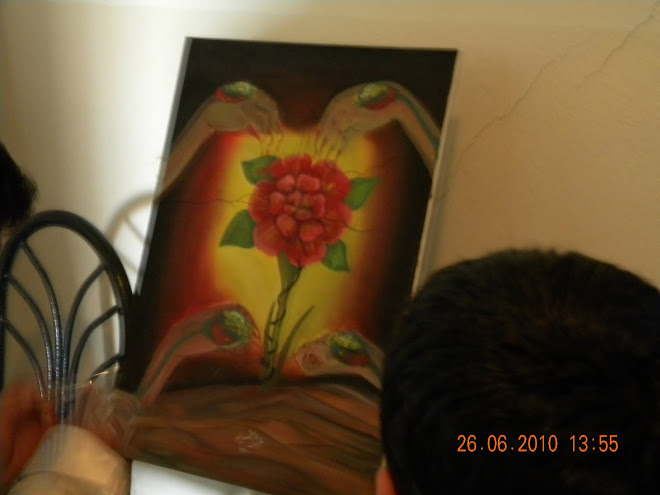.jpg)




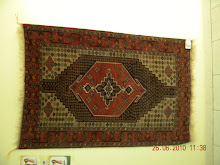.jpg)



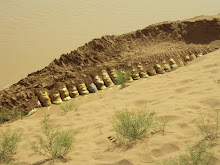




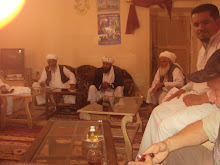
















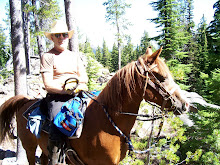


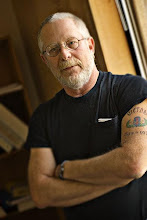
Stu, good to see you finally got "into the boonies"... In reading your recent blog, it amazed me on how much things never change in countries like Afghanistan or , or , or any place that is especially a tribal culture.. where we get our toes ins, spend a lot of bucks, spend a lot of blood and, of course at some level know we are going to leave (lets see, the next time will be what..3rd or 4th), before the job (an ever changing and never pinned down description)is done. Those in those country who stick their necks out to try and do the right thing end up paying a price for their support. I don't see us being their more than the term of the present President, even if he gets one more shot...shaky at present. In the end with the economy in the shitter, the cost of the operation will kill the probably kill the deal, before the American electorate does. As you are well aware, since most of us go on everyday as if its the same, since we don't have someone serving or haven't lost someone , there is less and less attachment to those caring the burden of service. Those who serve, as always, bear the burden of not always being put to the best use by the leadership team..
ReplyDeleteAlso, I had the same thought as you about all the per Super Battle (Bowl?) pr for the recent throwdown with the Taliban ... Take care, all our best.. P.S. Who would have thought an EOD movie would ever be up for best Pic of the Yr.. It is a strange world.
Amazing that you have had all those supplies sacked, and the lack of organization over there is extreme. What crappy conditions, and what an adventure for you. What are the J55 and Quick Reaction teams, and who is the skinny guy who looks like Stu?
ReplyDelete